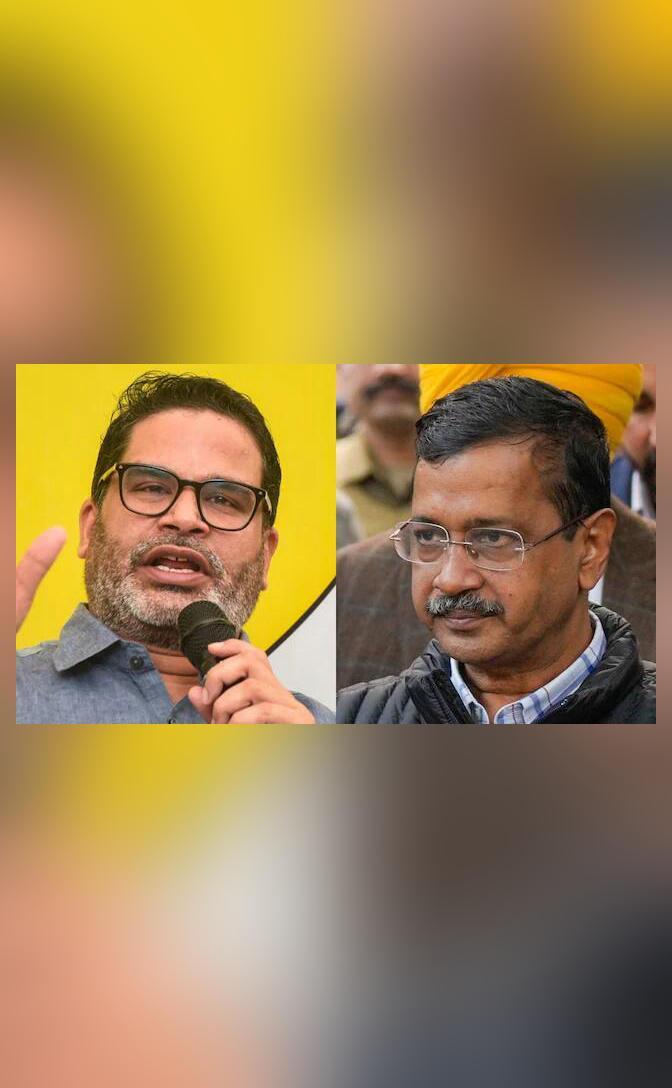
Prashant Kishor Lists Reasons Why Kejriwal & AAP Lost in Delhi Elections
The Delhi Assembly elections results were a significant blow to the Aam Aadmi Party (AAP) and its leader Arvind Kejriwal. The party’s failure to win the elections has sparked a lot of debate and analysis, with many experts and political strategists weighing in on what went wrong. One such strategist is Prashant Kishor, a renowned politician and former advisor to several political parties. In an interview with News18, Kishor shared his insights on the reasons behind AAP’s defeat, and it’s worth noting that his views are particularly valuable given his experience in helping parties win elections.
According to Kishor, one of the primary reasons for AAP’s defeat was Kejriwal’s decision to resign as Delhi Chief Minister after being granted bail in the liquor policy case. Kishor believes that this move was a “big strategic mistake” that hurt the party’s chances of winning the elections. He argued that if Kejriwal had resigned after his arrest, it would have shown that he was willing to take responsibility for his actions and would have played well with the public. Instead, his decision to resign after being granted bail was seen as an attempt to save his own skin, which damaged his reputation and credibility.
Another crucial factor that contributed to AAP’s defeat was the 10-year anti-incumbency factor. Kishor pointed out that Delhi has a history of voting out the incumbent government after 10 years, and AAP’s failure to address this issue was a significant mistake. He suggested that AAP should have focused on addressing the concerns of the people and providing better governance, rather than relying solely on its populist policies.
Kejriwal’s fluctuating stance on the INDI Alliance was another major factor that hurt his credibility. Kishor noted that Kejriwal’s decision to join the alliance and then exit it was seen as a sign of weakness and indecision, which eroded the public’s trust in him. He argued that AAP should have stuck to its core ideology and not got swayed by short-term political gains.
Kishor also pointed out that AAP’s failure to connect with the youth was a significant mistake. He noted that the party’s policies and strategies were not resonating with the younger generation, who are increasingly disillusioned with the traditional political parties. He suggested that AAP needs to revamp its image and messaging to appeal to the younger voters.
Another issue that Kishor highlighted was AAP’s lack of a clear vision for the future. He argued that the party’s policies were too focused on addressing immediate issues, rather than having a long-term vision for the city. He suggested that AAP needs to develop a comprehensive plan for Delhi’s growth and development, rather than just focusing on short-term gains.
Kishor also criticized AAP’s over-reliance on social media. He noted that while social media is an important tool for political parties, it’s not a substitute for real-world engagement with the public. He suggested that AAP needs to focus on building relationships with the people and addressing their concerns, rather than relying solely on social media to reach them.
Finally, Kishor pointed out that AAP’s failure to address the concerns of the minority communities was a significant mistake. He noted that the party’s policies and strategies were not resonating with the minority communities, who are a significant voting bloc in Delhi. He suggested that AAP needs to develop policies that address the specific concerns of these communities and work towards building a more inclusive society.
In conclusion, Prashant Kishor’s views on the reasons behind AAP’s defeat in the Delhi Assembly elections provide valuable insights into the party’s mistakes and what it needs to do to improve its chances of winning in the future. By addressing the concerns of the people, providing better governance, and developing a clear vision for the future, AAP can regain its lost ground and become a more effective and credible political party.
Source:





